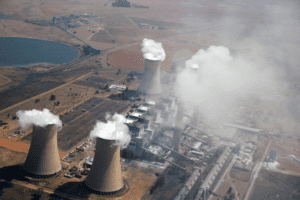 GroundWork, with the assistance of the Centre for Environmental Rights (CER), has submitted an appeal to the Water Tribunal against a water use licence issued to KiPower Limited for the proposed 600MW KiPower independent coal-fired power station.
GroundWork, with the assistance of the Centre for Environmental Rights (CER), has submitted an appeal to the Water Tribunal against a water use licence issued to KiPower Limited for the proposed 600MW KiPower independent coal-fired power station.
A river under pressure
These former mine pits are immediately adjacent to the Wilge River – categorised as a class II river system under the National Water Act, which means that no further impacts on this river can be tolerated.“The Wilge River plays a vital role in diluting pollution in the already highly-contaminated Olifants River into which it flows,” the organisation explains.
GroundWork director Bobby Peek notes: “It is clear that, if KiPower is allowed to go ahead, this will have extremely detrimental consequences for South Africa’s precious water resources and the communities who rely on them. “This would be in exchange for a modest and unnecessary contribution to South Africa’s electricity grid – which contribution can instead be made, more cheaply, through investment in renewable energy sources. Renewable energy from solar and wind, which is cheaper than coal, does not have the same devastating impacts on our water resources as coal-fired power generation.” The decision on whether or not KiPower’s water use licence shall remain in place is now in the hands of the Water Tribunal.





